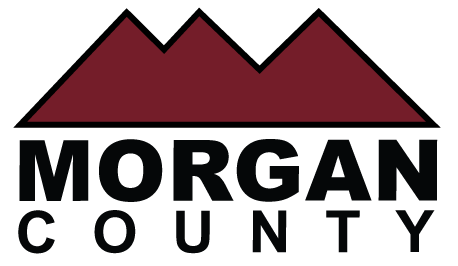Morgan County
Personal Property Division
Morgan County
Personal Property Division
Morgan County Personal Property
Application Forms Packet
Morgan County Personal Property
Most business property, real and personal, is subject to property tax. Real property consists of land, buildings and other improvements. Personal property is everything not treated as real property, including:
Under Utah law, county assessors are empowered to collect information on business personal property by using an annual signed statement to determine property value. A taxpayer must apply for the personal property exemption for tangible personal property with a total aggregate fair market value of $29,300 or less.
If a business fails to provide the requested information, the assessor must impose a penalty of $25 or 10 percent of the tax due, whichever is greater. If the signed statement is not filed after a second written notice, the property value will be estimated by the assessor.
Valuation
Business personal property is valued based on percent good schedules developed by the State Tax Commission. You can locate the schedules by going to the state’s website, https://propertytax.utah.gov/personal/
Taxation
Taxes are based upon the location and status of property as of January 1 of each year. Property acquired in 2024 is not taxed until Jan. 1, 2025. Property taxes are a primary source of revenue to local government entities including counties, school districts, cities and towns, and a variety of special districts. Taxes are due on May 15.
- furniture
- fixtures
- machinery
- equipment
- supplies
- Tangible personal property with a total aggregate fair market value of $29,300 or less per taxpayer within a single county
- Inventory held for resale in the normal course of business
- Farm equipment and machinery used primarily for agricultural production
- Livestock
- Household furnishings
- Intangible personal property
- Personal property used for irrigation purposes
Under Utah law, county assessors are empowered to collect information on business personal property by using an annual signed statement to determine property value. A taxpayer must apply for the personal property exemption for tangible personal property with a total aggregate fair market value of $29,300 or less.
If a business fails to provide the requested information, the assessor must impose a penalty of $25 or 10 percent of the tax due, whichever is greater. If the signed statement is not filed after a second written notice, the property value will be estimated by the assessor.
Valuation
Business personal property is valued based on percent good schedules developed by the State Tax Commission. You can locate the schedules by going to the state’s website, https://propertytax.utah.gov/personal/
Taxation
Taxes are based upon the location and status of property as of January 1 of each year. Property acquired in 2024 is not taxed until Jan. 1, 2025. Property taxes are a primary source of revenue to local government entities including counties, school districts, cities and towns, and a variety of special districts. Taxes are due on May 15.
Property intentionally concealed, removed, transferred, or misrepresented in order to avoid taxation is subject to a penalty of 100 percent of the tax due. Any property not assessed may be valued and taxed as far back as five years prior to the time the property is discovered.
Audits
The Property Tax Division of the State Tax Commission audits personal property accounts throughout the state. Audits are selected based on a variety of criteria, including failure to file the annual Personal Property Signed Statement. A business selected for an audit is notified by mail two weeks in advance of the audit. The auditor will call to schedule an on-site inspection of the property and the accounting records. Audit results may be appealed to the county board of equalization.
Holly Wilde - Personal Property
385-240-6444
Danielle Jones
801-845-6051
P.O. Box 680
48 W. Young, Room 31
Morgan, UT 84050
Hours Monday - Friday 8a.m. to 5p.m.
(excluding holidays)
Phone (801)845-4000
Utah Code in Title 59 requires the taxation of property for the funding of local government and Utah schools. Property tax is assessed on both real property and personal property. Generally, personal property used in business is subject to property taxes. Utah law requires business personal property to be reported to the county assessor where the property is located (has situs) on a tax form identified as a Personal Property Signed Statement. Registered motor vehicles and recreational vehicles are subject to Uniform Fees. Personal Property is taxed based on its taxable value as of January 1 of each year. In order to value personal property, the Utah State Tax Commission provides personal property classification schedules which are used by all county assessors in Utah.
Personal Property is valued using a classification system referred to as “Recommended Personal Property Valuation Schedules”. These schedules identify various types of personal property and provide a “percent good” of acquisition cost for commercial personal property. To determine property type or “class” refer to the Classification Guide to determine personal property value refer to the Recommended Personal Property Valuation Schedules for each class of property. These valuation schedules provide a factor to be applied to acquisition cost (refer to the Definition of Acquisition Cost below) and acquisition year to determine taxable value. Once taxable value is determined, the local taxing area rate is applied to calculate the tax.
48 W. Young, Room 31
Morgan, UT 84050
Hours Monday - Friday 8a.m. to 5p.m.
(excluding holidays)
Phone (801)845-4000
Utah Code in Title 59 requires the taxation of property for the funding of local government and Utah schools. Property tax is assessed on both real property and personal property. Generally, personal property used in business is subject to property taxes. Utah law requires business personal property to be reported to the county assessor where the property is located (has situs) on a tax form identified as a Personal Property Signed Statement. Registered motor vehicles and recreational vehicles are subject to Uniform Fees. Personal Property is taxed based on its taxable value as of January 1 of each year. In order to value personal property, the Utah State Tax Commission provides personal property classification schedules which are used by all county assessors in Utah.
Personal Property is valued using a classification system referred to as “Recommended Personal Property Valuation Schedules”. These schedules identify various types of personal property and provide a “percent good” of acquisition cost for commercial personal property. To determine property type or “class” refer to the Classification Guide to determine personal property value refer to the Recommended Personal Property Valuation Schedules for each class of property. These valuation schedules provide a factor to be applied to acquisition cost (refer to the Definition of Acquisition Cost below) and acquisition year to determine taxable value. Once taxable value is determined, the local taxing area rate is applied to calculate the tax.

